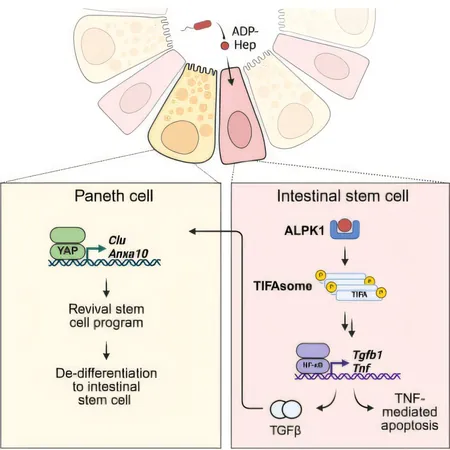
Breakthrough Drug Target Discovered for Treating Psychiatric and Neurological Disorders!
2025-09-22
Author: Siti
A Groundbreaking Discovery in Mental Health Treatment
Scientists at Johns Hopkins Medicine have made an exciting breakthrough that could reshape how we approach psychiatric and neurological disorders. With funding from the National Institutes of Health, researchers have pinpointed a new drug target that may revolutionize treatments for conditions like anxiety, schizophrenia, and even movement-related disorders.
Meet the Game-Changing Players: GluDs!
The spotlight is on delta-type ionotropic glutamate receptors, known as GluDs. These proteins have long been underestimated, believed to be inactive in the brain. According to Dr. Edward Twomey, a leading researcher in the study, 'Our findings indicate they are very much active and offer a potential channel to develop new therapies.' This revelation opens up a new avenue for drug development.
The Science Behind the Breakthrough
Using cutting-edge cryo-electron microscopy, Twomey and his team have unraveled the complex structure and function of GluDs. These proteins serve as crucial gateways for charged particles, facilitating communication between brain cells through neurotransmitter binding. This process is essential for synapse formation—the critical juncture where neurons connect.
Implications for Treating Movement Disorders and More
The implications of this discovery are vast. For patients suffering from cerebellar ataxia, a debilitating condition that impairs movement and balance, finding a drug that can inhibit the hyperactivity of GluDs could offer new hope. Conversely, for conditions like schizophrenia, where GluDs exhibit reduced activity, increasing their function might be the key to effective treatments.
Memory Preservation and Aging: A Bright Future?
The potential doesn’t stop there. Twomey suggests that targeting GluDs may also help combat memory loss associated with aging, by preserving synaptic function—making it a promising strategy for age-related cognitive decline.
Next Steps: Partnering for Progress
Looking ahead, Dr. Twomey aims to collaborate with pharmaceutical companies to transform this exciting research into tangible therapies. He and his team are also delving into specific mutations in GluDs linked to psychiatric disorders to create more tailored treatments.
A New Era in Treatment Awaits!
This groundbreaking research signifies a step forward in understanding and treating some of the most challenging psychiatric and neurological disorders we face today. With the right partnerships and continued investigation, the potential to change countless lives is within reach.





 Brasil (PT)
Brasil (PT)
 Canada (EN)
Canada (EN)
 Chile (ES)
Chile (ES)
 Česko (CS)
Česko (CS)
 대한민국 (KO)
대한민국 (KO)
 España (ES)
España (ES)
 France (FR)
France (FR)
 Hong Kong (EN)
Hong Kong (EN)
 Italia (IT)
Italia (IT)
 日本 (JA)
日本 (JA)
 Magyarország (HU)
Magyarország (HU)
 Norge (NO)
Norge (NO)
 Polska (PL)
Polska (PL)
 Schweiz (DE)
Schweiz (DE)
 Singapore (EN)
Singapore (EN)
 Sverige (SV)
Sverige (SV)
 Suomi (FI)
Suomi (FI)
 Türkiye (TR)
Türkiye (TR)
 الإمارات العربية المتحدة (AR)
الإمارات العربية المتحدة (AR)